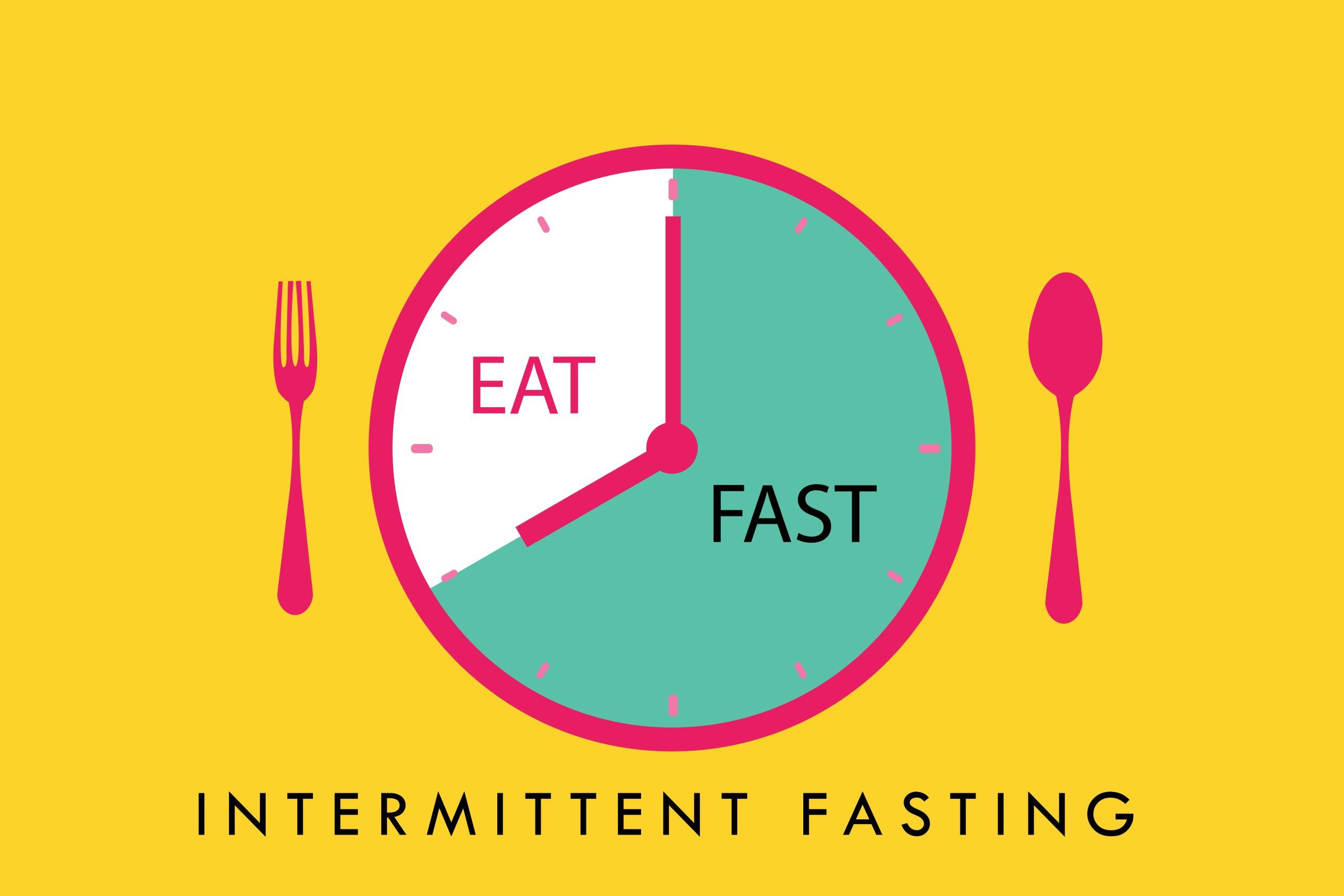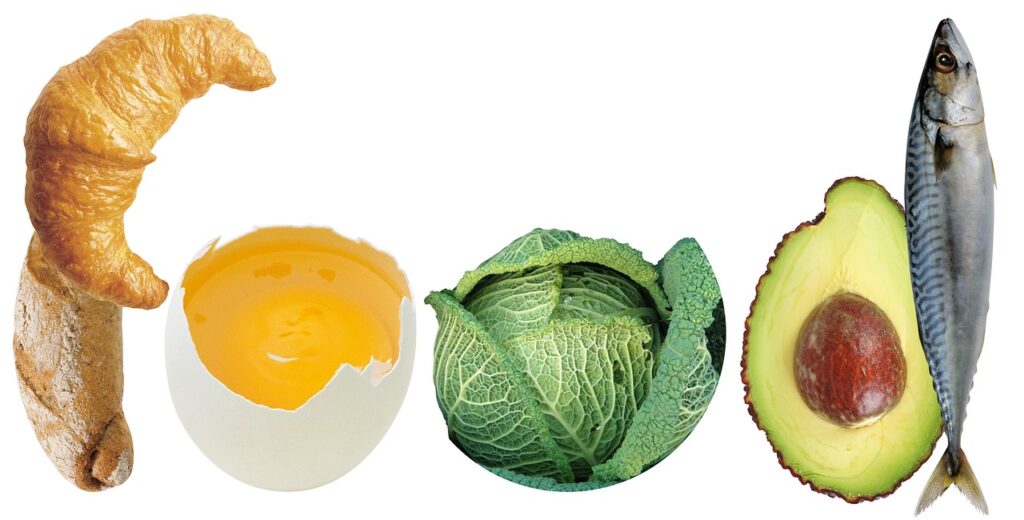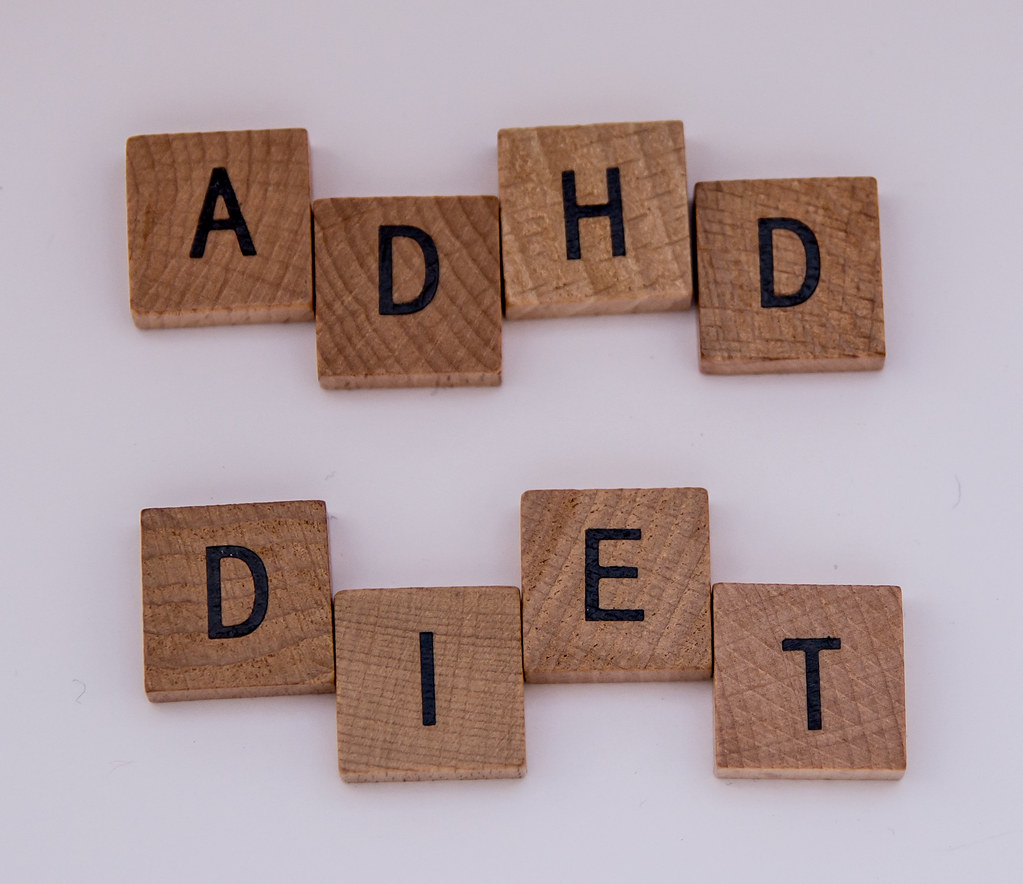
In the dazzling world of Hollywood, where red carpets and social media feeds dictate so much of our perception of health and beauty, celebrity diet trends have become more than just fleeting fads. They are powerful influencers, shaping how millions worldwide eat, think, and talk about wellness. From A-listers showcasing their green smoothies on Instagram to actors swearing by rigorous fasting routines, public figures have evolved into wellness gurus, launching supplements, collaborating with fitness tech, and making science-backed health feel, well, cool again.
Yet, as consumers, it’s crucial to approach these widely publicized eating plans with a critical eye. Just because a star has a massive following or features on a popular talk show doesn’t automatically qualify them to dispense nutritional guidance. The line between entertainment and legitimate health advice has blurred significantly, making it essential to sift through the hype and seek out reputable sources, such as registered dietitians and qualified healthcare professionals, for evidence-based information on healthy eating.
This in-depth exploration aims to do just that. We’ll examine some of the most prominent celebrity diet trends, both long-standing and newly emerging, and weigh them against the insights of nutritionists and scientific research. Our goal is to provide a comprehensive, balanced, and empathetic guide to understanding which of these glamorous eating habits truly offer sustainable health benefits and which might be best approached with caution. Let’s delve into the science behind the celebrity allure.
1. **Low-Carb Diets, Including Keto**
Low-carb diets, particularly the ketogenic (keto) diet, have garnered significant attention from celebrities and the public alike. The fundamental premise of cutting carbohydrates is to encourage the body to enter a state of ketosis, a metabolic process where it burns fat for fuel instead of glucose. This fat-burning mechanism is often cited as a key driver for weight loss. High-profile figures like Kim Kardashian have publicly stated their commitment to cutting carbs completely to shed pounds, while Halle Berry famously utilizes a keto diet to assist in managing her diabetes, highlighting its potential therapeutic applications.
From a nutritionist’s perspective, the keto diet has received a mixed verdict, demonstrating efficacy in certain areas. Scientific research indicates that it can be effective for weight loss, often leading to a reduction in appetite. Furthermore, studies have shown improvements in insulin sensitivity, which is particularly beneficial for individuals dealing with diabetes or prediabetes. Beyond weight management, the keto diet has also shown promising results in the management of epilepsy, certain neurological conditions, and various metabolic disorders, underscoring its potential beyond just aesthetic goals.
However, the enthusiasm for keto is tempered by several significant concerns from health experts. Many dietitians point out that the diet is notoriously difficult to adhere to in the long term, which can lead to a lack of sustainability in any weight loss achieved. A review published in 2018 concluded that high-quality studies often show no significant difference in weight loss between a keto diet and a low-fat diet, provided both are calorie-deficit plans. The initial weight loss on keto is also frequently not sustained, suggesting it may not be a viable long-term solution for many.
Moreover, dietitians express concern about the potential impact on quality of life, as the drastic reduction of carbs can lead to feelings of low energy. The human body requires carbohydrates to function optimally, and completely displacing them can result in nutrient deficiencies. A significant drawback also lies in the dietary shifts it encourages: by cutting carbs, individuals on keto may tend to consume high amounts of saturated fats from foods like bacon and butter. This increased intake of saturated fat is directly linked to a heightened risk of heart disease, raising serious questions about the long-term health implications of such a restrictive approach.
Read more about: I Tried the Most Popular Protein Bars — Here’s a Deep Dive into the Best and What to Consider for Your Goals

2. **Intermittent Fasting**
Intermittent fasting (IF) has solidified its place as a celebrity staple, with numerous stars openly discussing their experiences and perceived benefits. Unlike traditional diets that focus on *what* to eat, IF primarily restricts *when* one eats, involving cycles of eating and fasting. Popular versions include the 5:2 diet, where individuals eat normally for five days and consume only 25% of their usual calories (500 for women, 600 for men) on two non-consecutive days, and OMAD (One Meal A Day), which has been gaining renewed traction. Actors like Jennifer Aniston, David Harbour of *Stranger Things*, Terry Crews, Scarlett Johansson, Mark Wahlberg, Hugh Jackman, and Miranda Kerr have all shared their engagement with various forms of fasting.
Scientific studies have indeed supported intermittent fasting as a viable strategy for both weight loss and the improvement of metabolic health. Experts agree that IF can lead to a measurable reduction in overall calorie intake, which in turn promotes weight loss. Its effectiveness is partly attributed to enhancing fat burning and increasing insulin sensitivity, vital for metabolic regulation. Beyond these core benefits, research, including studies published in *Cell Metabolism*, has highlighted potential advantages for brain health, increased longevity, and cellular repair processes, though experts emphasize that more extensive research is still needed to fully understand these broader impacts.
Despite its documented benefits, intermittent fasting presents several potential drawbacks that individuals should carefully consider. Adhering to strict fasting windows can be profoundly challenging, often leading to feelings of intense hunger, irritability, and difficulties with concentration, which can disrupt daily life and productivity. Furthermore, particularly with extended fasting periods or extreme versions like OMAD, there’s a risk of losing muscle mass along with fat, which can be detrimental to overall body composition and long-term health. Nutritionists warn that OMAD, in particular, isn’t suitable for everyone, especially if it leads to inadequate nutrient intake or subsequent episodes of overeating.
Given these considerations, experts strongly recommend consulting a healthcare professional or a registered dietitian before embarking on an intermittent fasting regimen. This is especially important for individuals with underlying medical conditions, those taking medications, or pregnant women. The safest and most effective approach to intermittent fasting involves careful planning and professional guidance to ensure it aligns with individual health needs and does not lead to unintended negative consequences.
Read more about: Navigating the ‘Toxic’ Diet Fad: A Deep Dive into Gwyneth Paltrow’s Wellness Controversies and Expert Warnings

3. **The Fast 800 Diet**
The Fast 800 diet, developed by the prominent TV health expert Dr. Michael Mosley, is a specific adaptation of intermittent fasting that has garnered significant attention for its bold health claims. It positions itself as a comprehensive approach with the potential to significantly cut the risk of serious chronic conditions, including type 2 diabetes, heart disease, and various forms of cancer. These are substantial assertions that naturally pique the interest of anyone looking to improve their long-term health and well-being.
The diet’s methodology is structured into distinct phases, beginning with an initial period of very low-calorie intake. This restrictive phase is then followed by a stage of intermittent fasting, leveraging the principles of time-restricted eating to further its objectives. Finally, participants transition into a maintenance phase, designed to help sustain the results achieved during the earlier, more intensive periods. This phased approach suggests a journey rather than a quick fix, aiming for more enduring lifestyle changes.
While the Fast 800 diet builds upon the established principles of intermittent fasting, its specific claims and structured format necessitate careful scrutiny. Nutritionists and health experts would typically assess whether Dr. Mosley’s assertions about cutting disease risk stack up against robust scientific evidence. They would evaluate the diet’s overall safety, particularly during its initial low-calorie phase, and its long-term effectiveness. Crucially, they would also consider the diet’s sustainability, examining whether individuals can realistically maintain such a structured and, at times, restrictive eating pattern over an extended period without adverse effects on their physical or mental well-being.
Read more about: Your Car’s Hot Seat: 14 Everyday Essentials That Become Hazards in Summer Heat

4. **Plant-Based Diets, Including Veganism**
A burgeoning number of celebrities are embracing plant-based diets, often citing both ethical considerations and significant health benefits. While terms are sometimes used interchangeably, it’s important to differentiate: a plant-based diet primarily centers on fruits, vegetables, grains, pulses, legumes, nuts, and meat substitutes, yet may still include small amounts of meat and fish. Veganism, conversely, is a stricter adherence, eliminating all animal products entirely. Celebrities like Billie Eilish, Woody Harrelson, Lizzo, Paul McCartney, Carrie Underwood, and Milo Ventimiglia are prominent advocates for this lifestyle choice, showcasing its growing appeal across various public platforms.
The health pros of a plant-based approach are robust and well-documented. Reviews have consistently shown that individuals adhering to plant-based diets tend to live longer and experience a drastically reduced risk of chronic diseases, including heart disease, type 2 diabetes, obesity, and certain types of cancer. These diets are typically rich in fiber, antioxidants, and a wide array of beneficial plant compounds. Moreover, they are generally lower in saturated fats and cholesterol, which contributes significantly to improved overall health. Under the careful supervision of a physician and a dietitian, this dietary pattern has even been shown to be effective in reducing medication dosages or, in some cases, eliminating the need for specific medications entirely.
Beyond disease prevention, plant-based diets are nutritional powerhouses. Studies confirm they are abundant in essential nutrients such as potassium, magnesium, and folate, alongside vitamins A, C, and E. The high fiber content not only aids digestion but also contributes to satiety, helping with weight management. The rich supply of antioxidants helps combat oxidative stress and inflammation, further supporting cellular health. Even with the common concern about protein intake in vegan diets, this issue can be effectively addressed through careful planning, incorporating protein powders, specific vegetables, beans, nuts, seeds, and whole grains as excellent alternative sources.
However, strict vegan diets do come with potential nutritional drawbacks. The primary concern revolves around the risk of deficiencies in certain vitamins and minerals predominantly found in animal-based foods. Key among these are vitamin B12, iron, zinc, and omega-3 fatty acids. Vegans must pay diligent attention to ensure adequate intake of these nutrients, often requiring the strategic use of fortified foods or, when necessary, supplements. For those who adopt a raw food diet, like Woody Harrelson, while it boosts fruit and vegetable intake, scientific evidence for overall health benefits is limited, and it carries an even higher risk of nutrient deficiencies, posing challenges in meeting all nutritional needs.
Read more about: Hollywood’s Health Playbook: Unveiling the Surprising Diet Secrets of Tinseltown’s Fittest Stars for Your Own Wellness Journey
5. **Mediterranean Diets**
The Mediterranean diet stands out not merely as a diet, but rather as a holistic lifestyle, distinguished by its lack of stringent rules regarding mealtimes or portion sizes. Its essence is rooted in the traditional eating patterns of countries bordering the Mediterranean Sea, emphasizing an abundance of fruits, vegetables, legumes, nuts, olive oil, and fish. It consciously limits processed carbohydrates, added sugars, and dairy, promoting instead a diet rich in whole, unprocessed foods. Victoria Beckham, known for her rigid eating habits, often focuses on grilled fish with vegetables, a practice highly consistent with the tenets of the Mediterranean diet, indicating its appeal even among those with precise dietary preferences.
This eating pattern has been lauded globally, earning the distinction of being ranked the best diet in the world by US News for six consecutive years, a testament to its widespread recognition for health benefits. The Mediterranean diet is exceptionally high in antioxidants and polyphenols, which a 2022 meta-analysis has shown to be highly effective at maintaining robust health. Research consistently demonstrates that individuals adhering to this diet exhibit the lowest incidences of obesity and chronic diseases, affirming its protective qualities. Sports performance dietitian Destini Moody, RD, CSSD, LD, emphasizes that it “focuses on balance,” prioritizing overall diet quality over rigid restrictions or the elimination of entire food groups.
Studies have unequivocally linked adherence to the Mediterranean eating pattern with a reduced risk of serious health conditions. This includes a lower risk of heart disease, stroke, type 2 diabetes, certain cancers, and even overall mortality. The profound benefits are attributed to its comprehensive emphasis on whole foods, healthy fats—particularly monounsaturated fats derived from olive oil—and its rich content of antioxidants and fiber. These elements collectively contribute to its favorable effects on metabolic health, cardiovascular well-being, and cellular protection.
Remarkably, among the various dietary approaches discussed, the context provided mentions virtually no cons for the Mediterranean diet. Its emphasis on diversity, whole foods, and healthy fats, coupled with its flexible, lifestyle-oriented nature, makes it a highly recommended and sustainable option for promoting long-term health. It serves as an excellent example of a dietary pattern that is widely endorsed by both scientific research and nutrition experts for its comprehensive and balanced approach to wellness.
Read more about: Navigating the ‘Toxic’ Diet Fad: A Deep Dive into Gwyneth Paltrow’s Wellness Controversies and Expert Warnings

6. **Detoxing and Healthy Alternatives**
The concept of “detoxing” has long been a fixture in celebrity health narratives, with dramatic weight loss in gossip columns often attributed to drastic detox diets. However, the culture around extreme detoxes appears to be gracefully falling out of fashion, reflecting a broader shift towards more sustainable and evidence-based approaches to wellness. Nutritionists and health experts have consistently highlighted a significant problem with traditional detox diets: they often involve cutting out entire food groups, which inevitably leads to missing out on essential nutrients. Such restrictive practices are not only unsustainable in the long term but can also be detrimental to overall health, creating nutritional deficiencies and potentially fostering an unhealthy relationship with food.
Instead of full-on ‘juice cleanses’ or radical eliminations, a more healthful trend, exemplified by figures like Meghan Markle and Blake Lively, involves a more measured approach: incorporating more fresh juices into one’s diet as a way to boost nutrient intake. This strategy focuses on *adding* beneficial elements rather than severely *restricting* necessary ones. It’s about enhancing the diet with nutrient-dense liquids, providing vitamins, minerals, and antioxidants, without the pitfalls of depriving the body of other crucial food groups. Nutritionists actively guide individuals on how to detox in a healthy way, emphasizing methods that support the body’s natural detoxification processes through balanced nutrition rather than extreme measures.
The core message from experts is clear: the human body is inherently equipped with its own sophisticated detoxification systems, primarily carried out by organs like the liver and kidneys. These systems function optimally when supported by a balanced, nutrient-rich diet, consistent hydration, and a healthy lifestyle. Drastic detox diets, with their promise of quick fixes, often overlook the fundamental need for sustainable nourishment. They can also create an illusion that one can compensate for unhealthy eating habits with short, intense periods of deprivation, which is ultimately counterproductive to long-term health goals.
Therefore, the evolution of thinking around detoxing among celebrities and health professionals alike reflects a growing understanding that genuine wellness stems from consistent, mindful eating habits. Focusing on whole foods, ensuring nutrient diversity, and listening to the body’s needs are far more effective and safer strategies than resorting to restrictive fads. The emphasis has shifted from dramatic, short-term deprivation to integrating healthy habits that nourish and support the body’s natural functions day in and day out.
Read more about: Navigating the ‘Toxic’ Diet Fad: A Deep Dive into Gwyneth Paltrow’s Wellness Controversies and Expert Warnings
7. **The Dopamine Diet**
The dopamine diet is another intriguing dietary plan that has made its way into the celebrity sphere, most notably championed by Chef Tom Kerridge, who famously attributed an impressive 11 stone weight loss over three years to following this eating strategy. At its core, the dopamine diet is characterized as a low-carb eating plan with an additional, compelling claim: it aims to improve mood by focusing on foods believed to boost the release of dopamine, often referred to as the ‘happy hormone.’ This dual promise of weight loss and enhanced emotional well-being undoubtedly contributes to its appeal.
The diet’s principles typically involve selecting foods that proponents suggest can naturally elevate dopamine levels in the brain, alongside a general reduction in carbohydrate intake. This combination is intended to promote satiety, aid in weight management, and foster a more positive mental state. However, the scientific evidence specifically linking particular foods to significant, sustained increases in dopamine and subsequent mood improvement, as a direct dietary intervention for weight loss, is an area that requires careful consideration and further research.
Given the specific claims related to both weight loss and mood enhancement, the dopamine diet is one that nutritionists and dietitians would meticulously review. Their assessment would focus on evaluating whether the scientific backing for its mood-boosting properties is substantial and if its low-carb structure aligns with principles of balanced nutrition. They would also consider the practical feasibility and safety of adhering to such a diet over the long term, particularly for individuals who might be drawn to it for mental health reasons. The objective is to determine if the diet’s benefits are truly effective and sustainable, or if it primarily operates on anecdotal success and the general benefits often associated with reducing processed food intake.
Therefore, while the personal success stories, like that of Chef Tom Kerridge, are compelling, the broader endorsement of the dopamine diet as a universally effective or scientifically robust approach for mood regulation and weight loss would hinge on the findings of comprehensive dietitian reviews. These expert analyses would scrutinize the precise mechanisms, potential risks, and overall balance of the diet to provide an informed perspective, helping individuals make educated choices about their dietary paths.
Navigating the ever-evolving landscape of celebrity health trends means looking beyond the immediate hype and towards enduring wellness principles. As we continue our exploration, we’ll delve into emerging dietary shifts, overarching health philosophies, and the crucial role of lifestyle factors that influence health. Finally, we’ll consolidate practical, expert-backed guidance to help you navigate your personal health journey.
Read more about: Unpacking the ‘Bliss Point’: The Calculated Ingredients That Make Fast Food So Irresistible and Addictive

8. **The Macrobiotic Diet**
Shifting from specific food groups, some celebrities have embraced diets that are more accurately described as comprehensive lifestyles. The macrobiotic diet, famously adopted by figures such as Gwyneth Paltrow and Madonna, is a prime example. Developed by a philosopher, it extends far beyond mere food choices, integrating a holistic approach to healthy living that encompasses both dietary practices and broader lifestyle advice.
At its core, the macrobiotic philosophy emphasizes balance through the consumption of whole, unprocessed foods, predominantly grains, vegetables, and legumes. It often recommends locally grown, organic produce and promotes mindful eating practices. The diet’s strictness, however, often leads to significant restrictions on certain food categories, including most dairy products, red meat, processed foods, and often even some fruits and vegetables not considered ‘in season’ or ‘local’.
Given its philosophical underpinnings and rigorous guidelines, adhering to the macrobiotic diet can be profoundly challenging for many individuals. Nutritionists typically evaluate such diets for their nutritional completeness and sustainability, questioning whether its strictures might lead to nutrient deficiencies or make long-term adherence impractical for the average person. While it promotes whole foods, the extent of its restrictions warrants careful consideration and, ideally, professional guidance to ensure nutritional adequacy.
Read more about: Ever Wonder What A-List Stars Really Eat? These 15 Master Chefs Are Bringing the Heat (Right Into Their Homes!)
9. **Carnivore-Style Breakfasts: TikTok’s Meaty Obsession*
In a bold departure from traditional breakfast fare, the ‘carnivore breakfast’ has emerged as a buzzy new trend, championed by both TikTok influencers and Hollywood A-listers like Chris Hemsworth and Joe Rogan. This eating style involves starting the day with substantial servings of meat, eggs, and sometimes even organ meats, prioritizing protein and fat while eliminating carbohydrates entirely. Proponents claim this meaty morning ritual can jumpstart metabolism and boost mental focus.
The allure of the carnivore breakfast lies in its simplicity and the promise of sustained energy without the typical post-carb crash. Those who follow it report enhanced satiety, reduced cravings, and improved alertness throughout the morning. The emphasis on high-quality protein and healthy fats aligns with modern nutritional understanding that these macronutrients are crucial for muscle maintenance and overall metabolic health.
From a nutritionist’s vantage point, while studies on a full carnivore diet are still mixed and ongoing, the principle of a protein-rich breakfast does hold scientific merit. Research indicates that consuming adequate protein in the morning can significantly improve satiety and contribute to better blood sugar regulation throughout the day. However, experts generally advise caution against extreme interpretations, such as daily consumption of organ meats, suggesting a balanced approach to ensure a wide spectrum of nutrient intake.

10. **High-Protein Snacking: Strong Is the New Skinny**
The landscape of celebrity snacking has seen a significant evolution, moving away from restrictive celery sticks and “detox” juices towards more robust, muscle-fueling options. Today’s Hollywood stars, including Zendaya and Jennifer Lopez, are embracing high-protein snacks as a cornerstone of their wellness routines. Think Greek yogurt, lean turkey jerky, and nutrient-packed cottage cheese bowls, all reflecting a broader philosophy where strength and vitality are prioritized over mere thinness.
This shift isn’t just a fleeting trend; it’s rooted in sound nutritional science. Experts are unequivocally on board with the benefits of frequent protein intake, particularly for individuals aiming for fat loss while preserving lean muscle mass. Research published in the *American Journal of Clinical Nutrition*, for instance, suggests that consistent protein consumption throughout the day is crucial for optimizing body composition and supporting metabolic function.
High-protein snacking plays a pivotal role in maintaining satiety between meals, which can prevent overeating and reduce unhealthy cravings. It also provides the necessary amino acids for muscle repair and growth, supporting an active lifestyle. This trend reflects a valuable cultural shift, as Hollywood increasingly celebrates physical strength and sustained energy, setting a more positive and attainable standard for health and fitness for its global audience.
11. **Plant-Based Intermittent Fasting (PBIF): A New Hybrid**
Emerging as an innovative fusion of two popular dietary approaches, Plant-Based Intermittent Fasting (PBIF) is gaining considerable traction among celebrities like Natalie Portman and Erykah Badu. This hybrid trend strategically combines defined fasting windows with meals rich in plant-based foods, emphasizing fiber, polyphenols, and healthy fats. It represents a sustainable and gut-friendly approach to wellness that seeks to maximize the benefits of both fasting and plant-focused eating.
PBIF stands out for its unique dual advantages. By adhering to time-restricted eating, individuals can experience improvements in insulin sensitivity and metabolic health, similar to traditional intermittent fasting. When paired with a diet abundant in whole, unprocessed plant foods, the body benefits from a rich array of vitamins, minerals, antioxidants, and beneficial plant compounds known for their anti-inflammatory properties and ability to support gut microbiota diversity.
Scientific inquiry is increasingly recognizing the potential of this combined approach. According to recent research highlighted in *Nutrients*, plant-focused diets, particularly when integrated with fasting protocols, may significantly boost cellular repair processes like autophagy and reduce oxidative stress. These mechanisms are vital for promoting longevity and maintaining overall cellular health, making PBIF an exciting frontier in sustainable and preventive nutrition.

12. **The Comeback of Carbs: Gwyneth’s Unexpected Pivot**
In a surprising, yet welcomed, shift, even wellness icon Gwyneth Paltrow has openly discussed reintroducing carbohydrates into her diet, signaling a broader movement among celebrities. Her recent interviews reveal a pivot towards a more balanced approach, embracing whole grains, sweet potatoes, and various fruits back into her daily meals. This development marks a significant departure from the carb-restrictive trends that have dominated celebrity diets for years.
This “comeback of carbs” reflects a more enlightened understanding that carbohydrates are not inherently the enemy, but rather essential fuel for the body and brain. The focus has shifted to distinguishing between highly processed, refined carbohydrates and nutrient-dense, complex carbohydrates that provide sustained energy and fiber. This philosophy encourages moderation and informed choices, moving away from rigid exclusion towards a more inclusive and flexible eating pattern.
The scientific community largely supports this re-evaluation, with new studies linking complex carbohydrates to better hormone regulation and improved mood. Embracing appropriate carbohydrate intake can support physical performance, enhance mental clarity, and contribute to a healthier gut microbiome. This trend among celebrities encourages a dialing down of unnecessary restriction and a turning up of moderation, paving the way for more sustainable and enjoyable dietary practices.

13. **Anti-Inflammatory Diets: Celebs Getting Clinical**
Chronic inflammation has been identified as a significant contributor to a wide array of health issues, leading celebrities to adopt more clinically focused anti-inflammatory diets. Figures like Samantha Ruth Prabhu have openly shared their journeys using specific nutritional strategies to manage autoimmune symptoms and promote overall well-being. This approach is rapidly becoming more than just a trend; it’s evolving into a fundamental lifestyle choice for many.
The core of an anti-inflammatory diet revolves around consuming foods rich in antioxidants, omega-3 fatty acids, and various beneficial plant compounds while minimizing inflammatory triggers. This means making turmeric shots, colorful berries, abundant leafy greens, and rich sources of omega-3s, such as fatty fish, Hollywood staples. These dietary choices work synergistically to reduce systemic inflammation, thereby supporting bodily functions at a cellular level.
The efficacy of anti-inflammatory diets is robustly supported by scientific research. A comprehensive 2024 review published in *The Lancet* meticulously detailed the strong links between anti-inflammatory eating patterns and a reduced risk of serious chronic conditions, including diabetes, depression, and heart disease. This evidence-backed approach underscores the profound power of food as medicine, providing a sustainable pathway to managing health and preventing disease.
14. **”Sleep Plays a Huge Role”**
Beyond specific dietary protocols, celebrities are increasingly acknowledging the critical role of lifestyle factors in their overall health, with sleep emerging as a paramount component. Michelle Pfeiffer notably articulated this sentiment, stating, “You have to get sleep. We’re always looking for that magic bullet and they don’t exist.” She rightly highlights that adequate rest is not merely a luxury but a non-negotiable foundation for effective diet and sustained well-being.
While not a diet in the traditional sense, obtaining sufficient sleep—typically defined as 7 to 9 hours per night for adults—profoundly impacts weight management and metabolic health. As nutritionists like Mary Sabat explain, proper sleep duration is crucial for regulating appetite hormones, specifically ghrelin (which stimulates hunger) and leptin (which signals fullness). A lack of sleep can disrupt this delicate balance, leading to increased cravings and poor food choices.
Furthermore, sleep significantly influences metabolism, energy balance, and insulin sensitivity. Amy Beney, MS, RD, CDCES, emphasizes that adequate sleep helps reduce cravings and supports energy levels essential for daily productivity and physical activity, both vital for weight loss and maintenance. Unlike many restrictive diets, improving sleep hygiene offers a host of benefits with virtually no drawbacks, making it a universally recommended strategy for anyone pursuing a healthier lifestyle.

15. **Expert-Backed Daily Habits for Sustainable Wellness**
As the whirlwind of celebrity diets continues to swirl, perhaps the most profound takeaways come not from dramatic transformations but from the consistent, daily habits espoused by leading nutritionists themselves. These experts, including Jhanvi Kanakia Sanghvi, Prateek Kumar, and Shweta Shah, advocate for sustainable practices that nourish the body and mind, emphasizing mindful eating and lifestyle integration over restrictive regimens.
Many professionals highlight foundational morning rituals that set a positive tone for the day. Jhanvi Kanakia Sanghvi, for instance, recommends avoiding stimulants like coffee immediately upon waking, instead opting for a handful of dry fruits and nuts to allow the body to awaken naturally, thereby reducing anxiety hormones. Prateek Kumar, on the other hand, prioritizes early morning workouts, followed by a warm, antioxidant-rich drink to support immunity and gut health.
Strategic approaches to meal timing and food combinations are also key. Jhanvi champions smaller, frequent meals every two hours to prevent overeating and advocates for separating indulgences like dessert from main meals, allowing proper digestion. Shweta Shah advises chewing ginger with pink salt before meals to soothe the stomach and enhance nutrient absorption, while also stressing the importance of avoiding “incompatible food combinations,” or Viruddhahara, to optimize digestive processes. These personalized yet scientifically sound habits collectively underscore that genuine wellness is built on consistent, informed choices, rather than chasing the next fleeting fad.
Read more about: Beyond the Bulk: Chris Hemsworth’s Real Health Journey and the Truth About ‘Harmless’ Supplements
In the dazzling world of celebrity health, where trends appear and disappear faster than a red-carpet flash, the ultimate lesson is clear: true, sustainable wellness isn’t found in a single magic pill or an extreme deprivation diet. It’s built on a foundation of balance, personalization, and consistency, guided by reliable scientific evidence and the wisdom of qualified nutrition professionals. While celebrities can certainly inspire, our personal journeys towards health must be rooted in mindful eating, adequate sleep, consistent physical activity, and choosing approaches that truly nourish our bodies and minds for the long haul. So, the next time a star’s latest diet hits the headlines, approach it with a discerning eye, and remember that your best health advocate is always you, armed with accurate information and expert guidance.









